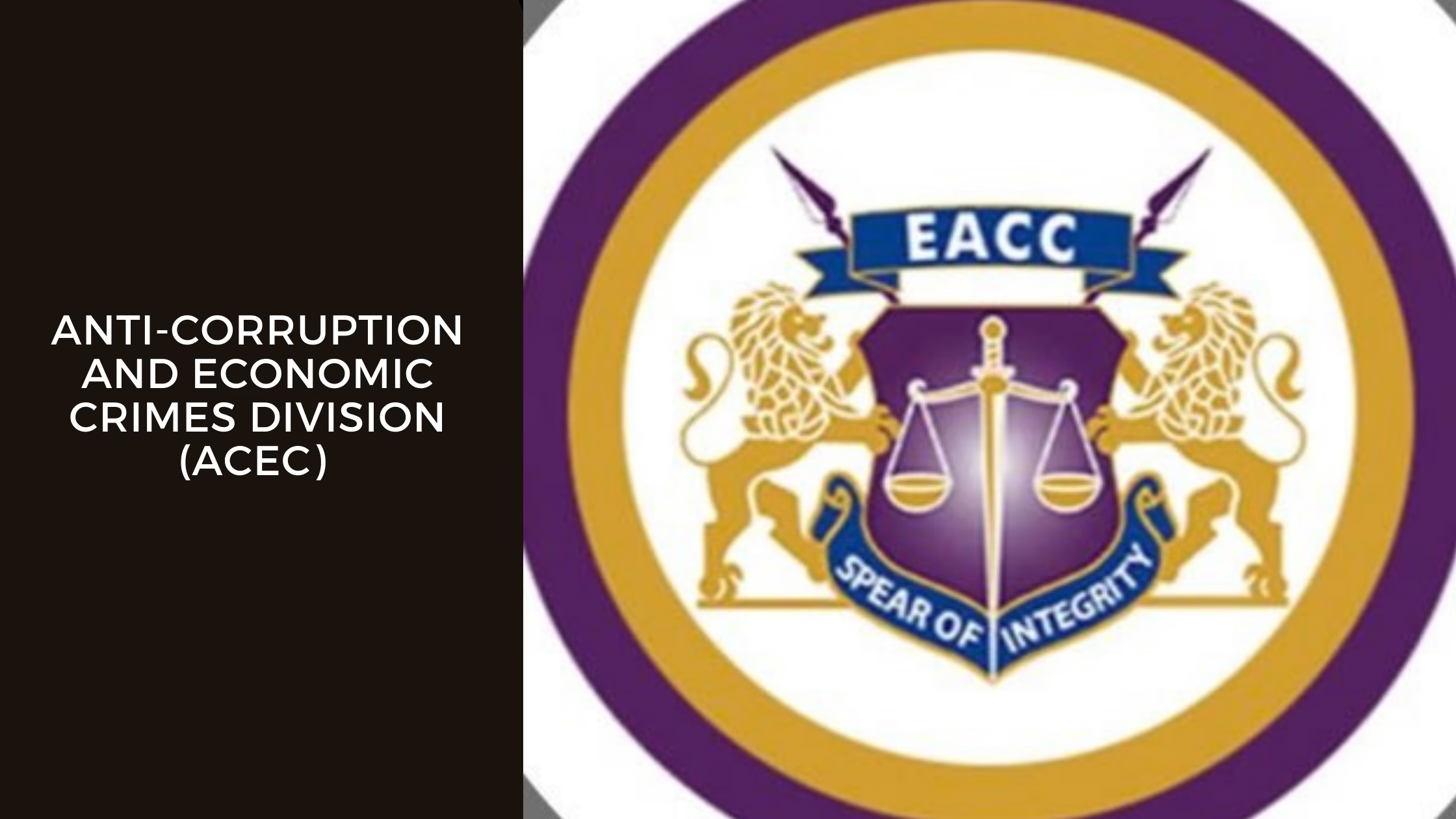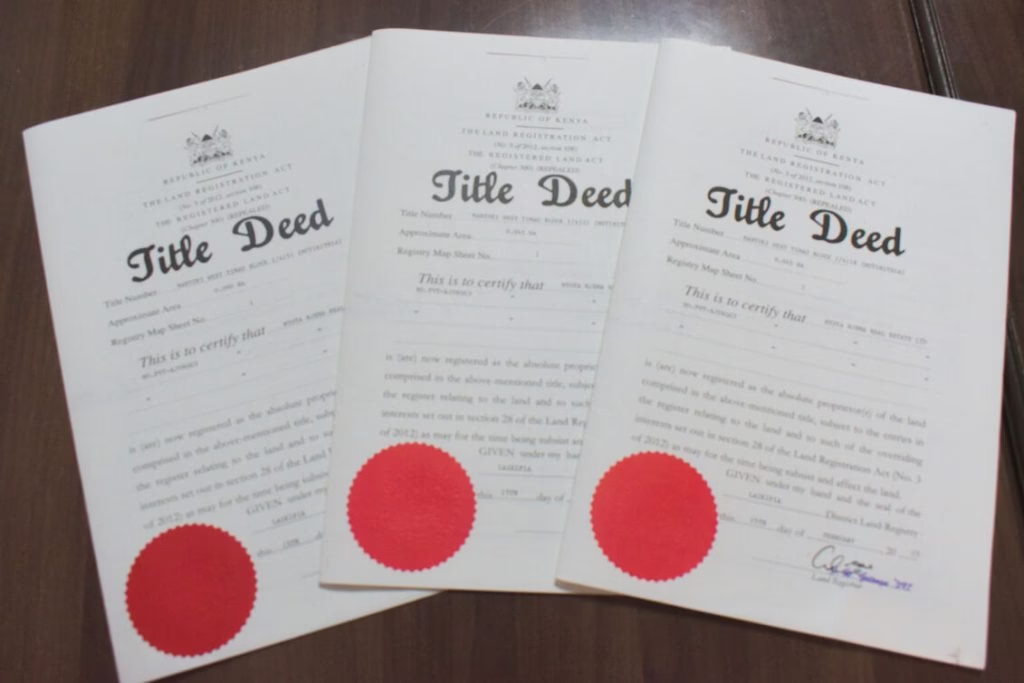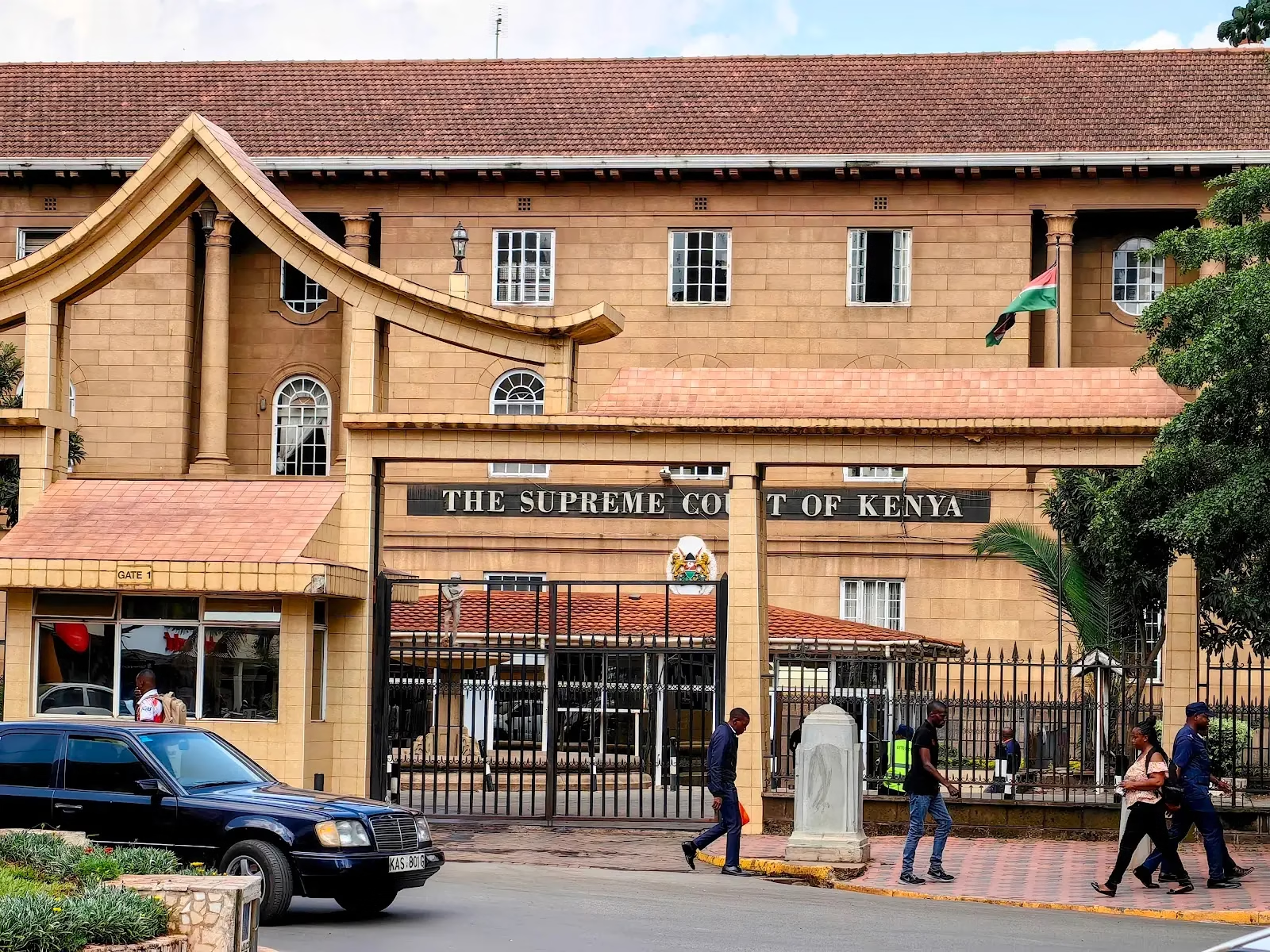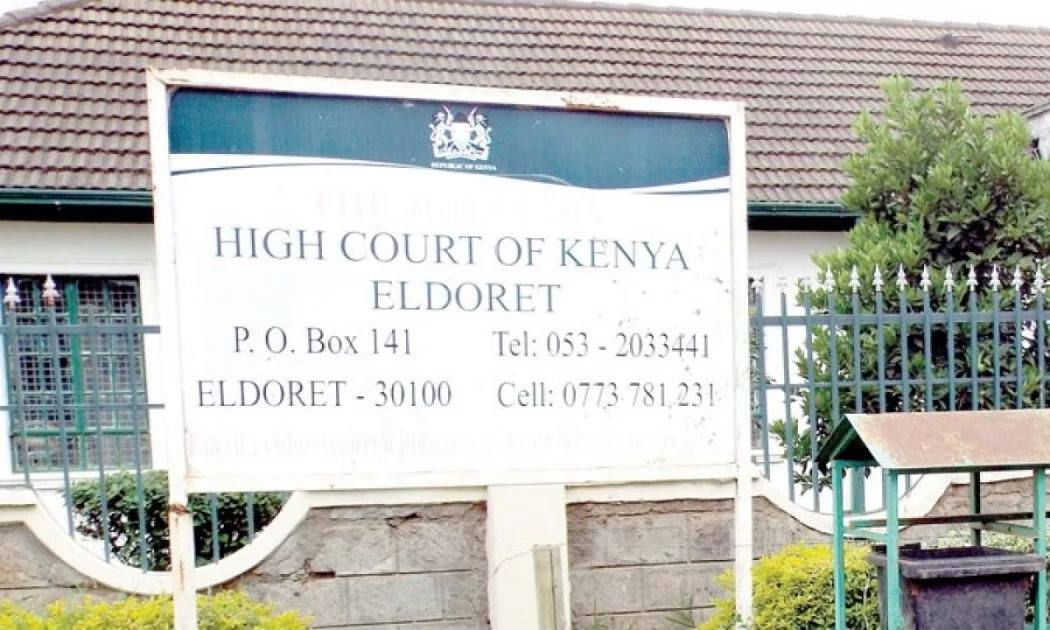Q: What is the ACEC Division?
A: The Anti-Corruption and Economic Crimes (ACEC) Division is a division of the High Court with original jurisdiction to hear and determine cases involving economic crimes. These cases are brought under the provisions of the Anti–Corruption and Economic Crimes Act No.3 of 2003 (ACECA), and the Rules thereto.
Q: What is the supervisory jurisdiction of the ACEC Division?
A: It exercises supervisory jurisdiction over special magistrates handling anti-corruption and economic crime cases.
Q: What types of matters are dealt with in the ACEC division?
A: They include:
· Miscellaneous Applications.
· Suits.
· Petitions.
· Appeals from decisions of special magistrates under ACECA and the Bribery Act.
· Revisions of decisions from magistrate courts.
· Judicial Reviews.
Q: How are cases filed in the ACEC Division?
A: Cases are filed electronically through the e-filing portal at https://efiling.court.go.ke. Required documents must be properly formatted and uploaded.
Q: What are Miscellaneous Applications in the ACEC Division?
A: They include:
· Applications for preservation orders of property or monies suspected to be proceeds of crime under the Anti-Corruption and Economic Crimes Act (ACECA). Such orders are valid for 6 months unless extended by way of an application by the applicant.
· Applications for preservation orders of property or monies suspected to be proceeds of crime under the Proceeds of Crime and Anti-Money Laundering Act (POCAMLA). Such orders are valid for 90 days unless extended by way of an application by the applicant.
· Applications for confiscation orders.
· Applications for restraint orders.
· Applications for leave to appeal out of time.
· Applications for stay of proceedings in the lower Court.
· Applications for bail.
· Application to file a petition.
· Application for JR.
· Transfer of files from one Court to another.
· Revision of bond terms.
· Witness protection.
· Private prosecution.
Q: What are the requirements for filing Miscellaneous Applications in the ACEC Division?
A:
· Originating motion/Notice of Motion.
· The Application should be dated and signed or thumb-printed by the applicant.
· A Supporting Affidavit duly signed by the applicant, dated and commissioned by a Magistrate / Commissioner for Oaths.
· Evidence of fee payment.
Q: What are suits in the ACEC Division?
A: These are cases instituted by way of Plaint under ACECA for recovery usually by the Assets Recovery Agency (ARA) or by way of Originating Summons under POCAMLA for forfeiture of monies alleged to be proceeds of crime.
Q: What are the requirements for filing suits in the ACEC Division?
A:
i) Suits under ACECA
• Plaint
• Verifying Affidavit
ii) Suits under POCAMLA
• Originating Summons
• Supporting Affidavit
• Annexures, if any
Q: What are petitions in the ACEC Division?
A: These are claims of infringement of a person’s constitutional rights arising from the enforcement of anti-corruption and economic crimes laws.
Q: What are the requirements for filing petitions in the ACEC Division?
A:
• Petition.
• Verifying Affidavit.
• Annexures, if any) Appeals
Q: What are the Appeals handled in the ACEC Division?
A: These are Appeals that arise from decisions by special magistrates under ACECA and the Bribery Act.
Q: What are the requirements of filing an Appeal in the ACEC Division?
A: Notice of appeal accompanied with charge sheet, the impugned decision and order.
Q: What are revisions handled in the ACEC Division?
A: These are matters brought by way of an application seeking to stay proceedings in the lower court, to call and examine the record of proceedings, to review, vary, reverse and/or alter a decision by way of ruling in a lower court case.
Q: What are the requirements of filing revision in the ACEC Division?
A: An application or letter.
Q: What is Judicial Review in ACEC Division?
A: These are matters brought by way of applications under Articles 22, 23,38, 47 and 50 of the constitution of Kenya, Order 53 of the civil procedure rule, Sections 8 and 9 of the Law Reform Act 1, 1A, 3 and 3B of the civil procedure act, 2010 Order 51 rule 9 of the civil procedure rules and all enabling provision of the law, seeking orders of mandamus, prohibition or certiorari for stay of proceedings, removal of any judgement, order, decree, conviction or other proceedings for purposes of being quashed.
Q: What are the requirements of filing a Judicial Review in ACEC Division?
A: Application.
Q: Are the ACEC offences bailable?
A: Yes, all offences in the ACEC Division are bailable. Bail is a constitutional right unless there are compelling reasons provided by the Office of the Director of Public Prosecutions (ODPP) to deny it.
Note: Content sourced from the Judiciary of Kenya’s X account.






















Leave a Reply